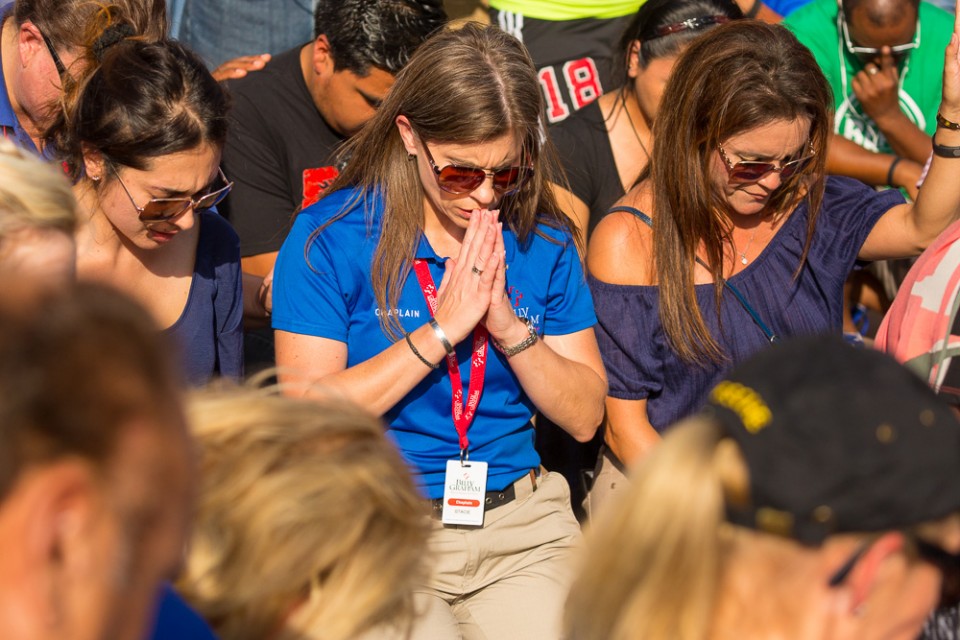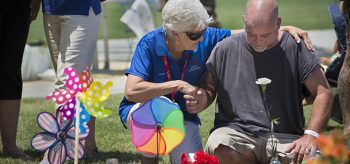
“Comfort each other and edify one another.”
—1 Thessalonians 5:11
We’re all human. So it makes sense that our hearts often hurt for people impacted by tragedies here and abroad—tragedies that can leave us feeling helpless.
What can we do in response to the violence and destruction around us?
1. Pray Deeply
“Prayer is the Christian’s greatest weapon.” —Billy Graham
As believers, we look up. We seek out God through prayer—and trust in His sovereignty.
Scripture tells us prayer is one of our most powerful resources. But how can you pray more deeply?
- This article by Anne Graham Lotz, “It’s Time to Pray!”, breaks it down with tips on how to pray with humility, certainty, authority and clarity.
When you don’t have any words, or when you feel like you’re beating down God’s door with the same prayer day after day, ask God’s Holy Spirit to help you. The Bible tells us the Holy Spirit is an intercessor for us and cries out to God on our behalf.
2. Immerse Yourself in God’s Word
When you feel as if your very soul hurts from news reports of another shooting, evil act or disaster, how do you find comfort?
There is a place of refuge. The Bible tells us, “Every word of God proves true; he is a shield to those who take refuge in him” (Proverbs 30:5).
- Here are 15 more comforting Bible verses for troubled times. Try incorporating these verses of God’s mercy and steadfastness into your prayers for those who are suffering.
- Does the Bible give us any hope for a better world? Billy Graham responds in this My Answer.
3. Guard Your Heart
“Grief can kill a person emotionally and physically. If not counteracted with God’s strength and power, our personal weakness may debilitate us.” —Billy Graham
Do our minds ever erase graphic images such as horrifying footage from tragic events?
You may have experienced what’s called secondary trauma from viewing video clips and photos on TV and social media. It’s important to recognize how these lasting impressions can affect you, as they can be physically, emotionally and spiritually damaging.
Although Billy Graham Rapid Response Team (RRT) chaplains are trained to offer hope and comfort in times of crisis, they can experience secondary trauma themselves.
- Learn how to cope with stress from troubling incidents as the chaplains do with this sound advice from RRT Director Jack Munday.
4. Care for Others
“Bear one another’s burdens, and so fulfill the law of Christ.” —Galatians 6:2
It’s important to guard your heart, but you can also support others experiencing secondary trauma—some who may be going through a personal crisis as well.
- Learn how to share hope amidst everyday tragedies through RRT’s Sharing Hope in Crisis course.
5. Support Crisis Ministry
“Let each of you look not only to his own interests, but also to the interests of others.” —Philippians 2:4
No matter how out of control the world gets, taking action and selflessly serving others can allow God’s perfect peace to fill your heart. If you feel God leading you to help people but can’t be there in person, you can still share hope with others worldwide.
- Support the Rapid Response Team in sending chaplains to provide emotional and spiritual care to those in crisis.
Are you searching for peace in a chaotic world? You can have that peace today.


